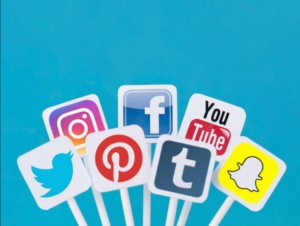Last Updated on 22/11/2021 by TheDigitalHacker
On Monday, the government released a new update on the IT rules that came into effect in May 2021, claiming that the new IT laws are in line with the Constitution’s provision of freedom of speech and expression and do not impose any new compulsion on users.
The IT ministry stated the regulations have a clear focus on preserving individuals’ online privacy and released a list of frequently asked (FAQs) surrounding the intermediate guidelines. And that protections are in place to ensure that users’ privacy is not infringed, even when identifying the original source of communications.
The users had some queries related to the new IT regulation, its scopes, change from the previous rules, how the rules improve women’s and children’s safety, and the due diligence that must be done by an intermediary, among other things, so was the aim of FAQ’s to answer such type of concerns.
“The new IT rules, 2021 have been framed consistent with these rights. The rules place no additional obligations on users and do not contain any sort of penalties applicable on users,”
The ministry said that the regulations do not impinge on the right to free speech and expression in response to one of the inquiries.
The laws also define a social media intermediary as an intermediary that “mainly or only” permits two or more users to “produce, upload, share, disseminate, alter, or access information using its services,” according to the ministry.
According to the ministry’s 20-page document, any intermediary whose primary goal is to enable commercial or business-oriented exchanges, provide access to internet or search-engine services, email service, or online storage service, among other things, will not qualify as a social media intermediary.
It also said,
“Therefore, typically, an entity which has some other primary purpose, but only incidentally enables online interactions, may not be considered as a social media intermediary.”

It noted that in order to qualify as a social media medium, the intermediary’s primary or single objective should be to enable online interactions.
“Socialization/social networking, including the ability of users to increase their reach and following, within the platform via specific features like follow/subscribe, etc,”
Facilitating online interactions would be part of the scope of allowing online interactions.
The ministry also added that Offering the option to engage with unknown individuals or users, as well as the potential to enable virality of material through sharing facilitation, would be considered facilitating online contact, according to the ministry. Moreover, the ministry will produce a Standard Operating Procedure (SOP) relating to IT regulations and intermediary norms, which will include information on the competent agencies with the capacity to send takedown notices to platforms.
“The rules, by providing these reasonable mechanisms and remedies, strive to ensure that social media platforms remain a safe space for all users, free from cyber threats, harassment, and unlawful content,” it said.
“However, keeping in view the functional requirements of the nodal contact person and the resident grievance officer, it is desirable that SSMI (Significant Social Media Intermediary) appoints separate persons for the two roles.”
A parent SSMI has the authority to nominate common officers for all of its goods and services. However, the contact information for these officials must be properly displayed on each of those product and service platforms.
In response to a query about whether detecting the message’s initial originator may jeopardize end-to-end encryption, the ministry stated that the rule’s goal is to get the registration data of the message’s first Indian originator, not to break or weaken the encryption.
It said, “How this hash will be generated or stored needs to be decided by the concerned SSMI, and SSMI is free to come up with alternative technological solutions to implement this rule,” It’s worth noting that India implemented new IT intermediary laws earlier this year, with the goal of increasing responsibility for large digital corporations like Twitter and Facebook.
Rajeev Chandrasekhar, Minister of State for Electronics said while releasing the FAQs, “Internet for all of the good things represents the ability to deliver good governance, the ability for the last person in democracy to reach out to the government.
“… but it also represents significant growth in things we refer to as user harm and criminality and so policymaking has to address, grow the good, and address the bad in a manner that is transparent and effective,”
“The Internet must always remain open… openness means it is bereft from not just state and government influence but is also free from dominant big tech influence and one of the ways to normalize that is to create among bigger platforms a culture of rules-based accountability to their users,” he further said.










